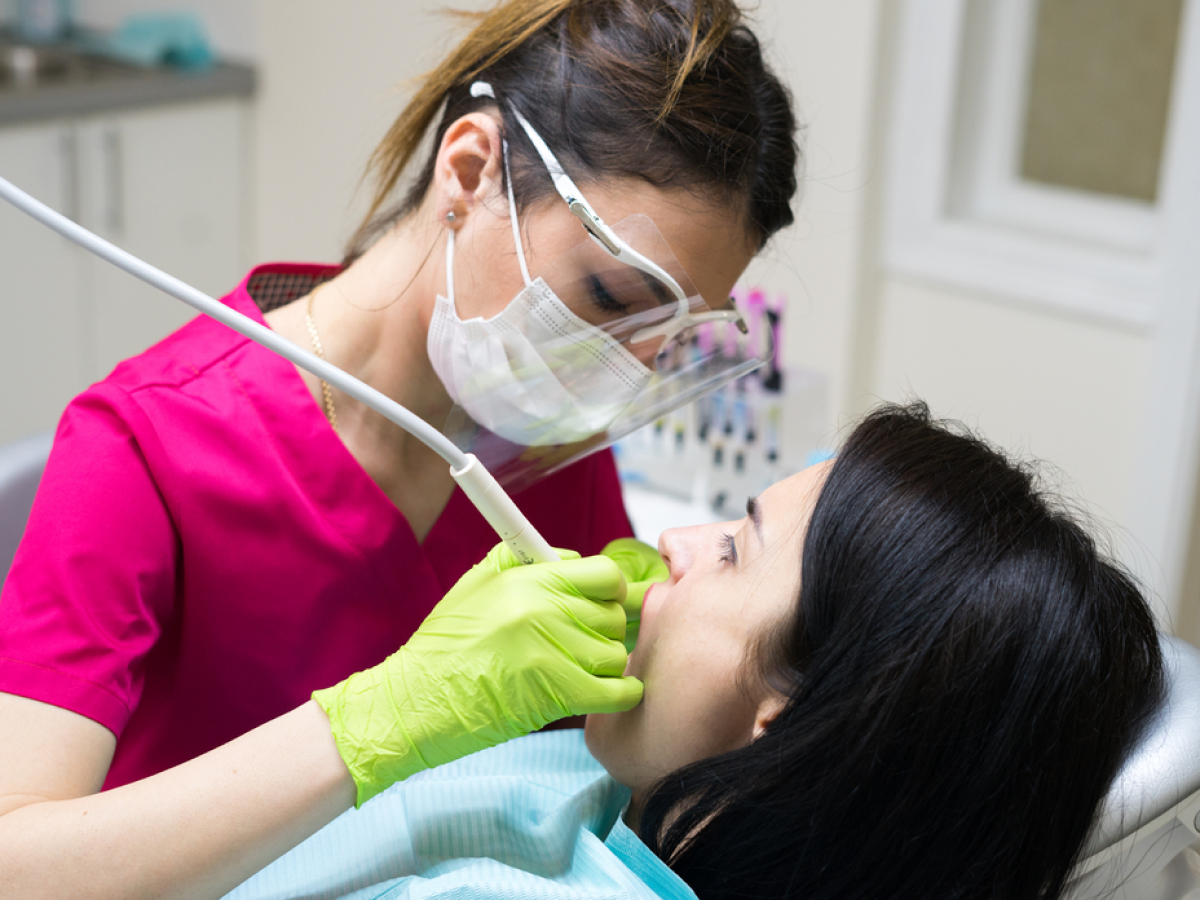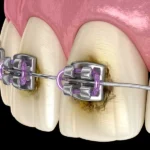What To Expect After Wisdom Teeth Removal?

Fortunately for some patients, there are many cases where surgery following multiple extractions results in minimal after-effects. That said there are other cases where the effects can be more pronounced. Here is a simple breakdown of what to expect following oral surgery for multiple wisdom tooth extractions.
Table of Contents
What To Expect The Day of Your Surgery?
On the first day of surgery and within the first hour the patient is asked to gently but firmly bite down on gauze pads that are placed delicately into the surgical area. Your surgeon placed some gauze pads on the surgical area to control the bleeding. Keep them in position by biting down on them with a firm but gentle grip. Unless the bleeding is uncontrolled, refrain from changing the packs during this period. After an hour, you can remove the gauze pads gently. If continuous bleeding occurs, replace the bandage to put pressure on the surgical area for 30 minutes. Then you can change the dressing after 30 to 45-minute intervals. It is recommended to dampen the gauze pads with some clean water and ruffle it up loosely for more comfort.
This is usually done for about an hour at which time they are then gently removed. If bleeding persists, patients will receive a new gauze pad and be asked to apply steady pressure to the surgical site for an additional 30 to 40 minutes. Going forward, the gauze may be changed as required depending on the amount of bleeding being experienced.
Patients should be cautious not to disturb the surgical area, in particular on the first day following surgery. The surrounding teeth can be brushed gently while patients that smoke should refrain from smoking for at least the first few days. Rinsing with a warm water and salt mixture should be done several times a day especially after eating.
Do and don’ts after wisdom teeth removal?
Patients should know that on the first day following surgery that they may be losing some blood from the surgical site. Continuing to place a gauze pad over the area and biting down gently but firmly will help to control the bleeding. Replacing the gauze frequently if there is steady bleeding will help to assist in reducing the bleeding and facilitate healing.
What to expect when you get your wisdom teeth out?
If patients experience severe and persistent bleeding they should contact their dental care provider as soon as possible. Always choose to sit upright in a chair or recliner and avoid any physical activity. Use ice packs and continue to bite on gauze pads as a way to further control bleeding. Patients may also experience some level of swelling on the first day following surgery that may persist for 2 to 3 days. This can be minimized by the use of a cold pack or even a bag of frozen peas wrapped in some towel or cloth that is then applied to the face.
The patient should expect some degree of pain following any oral surgery. Pain and discomfort are just a normal part of the healing process after any surgical procedure. Some patients may be prescribed pain medication to better deal with uncomfortable pain. Consider taking your first pain medication pill before the anesthesia wearing off. This will help you to better manage pain.
Alternately, ibuprofen or aspirin can be used as an analgesic to reduce pain over the short or long term. As a note, as with most oral surgeries, the most severe pain is experienced within the first six hours following the treatment. This is encouraging because the pain will continue to mitigate steadily over time. Regarding eating, it is best to stick with soft non-acidic foods. Patients should also avoid extremely hot or very cold foods. Puréed foods such as puddings, milkshakes, and yogurt are highly desirable.
Nausea and vomiting may become a concern especially when a considerable amount of blood is unintentionally swallowed. Carbonated soda such as ginger ale can often be used as a way to reduce nausea and vomiting. Also, some over-the-counter medications are intended to specifically target nausea. Consult with your dental care provider to make the best choice in this regard.
How To Perform Oral Hygiene After Surgery?
The second and third day following oral surgery requires much of the same as on the first day. Keep the mouth clean and rinse with salt and warm water regularly. Patients should begin brushing their teeth more normally and performing oral hygiene care such as flossing gently. While the first few days following surgery are typically the most uncomfortable and include swelling, the third day is usually more comfortable allowing the patient to return to a more normal routine.
Other common occurrences following oral surgery for wisdom tooth extraction include occasional dry lips where the corners of the mouth may also be dry or cracked due to slight stretching during the operation. Only keep your lips moist with some type of over-the-counter ointment to address this problem. Also, some patients experience a sore throat following oral surgery. This may be due to muscles in the throat becoming swollen and should dissipate in just a few days. As a note, a sore throat that results from oral surgery may make swallowing difficult or painful.
A small percentage of patients may experience a stiff jaw muscle as a result of surgery for wisdom tooth extraction. Patients may experience difficulty in opening their mouth for the first few days after surgery because of this. It is considered a typical postoperative event and will usually correct itself within the first week following the surgical procedure. Finally, some patients may feel sharp edges around the surgical area. This may be the result of the bony walls that previously supported the extracted wisdom tooth. In rare cases, even small slivers of bone may extrude from the surgical site. Any time something seems unusual following surgery contact your dental care provider or oral surgeon as soon as possible. All said wisdom tooth extraction surgery is safe and routine for people of all ages.
Practice care:
Refrain from causing disturbance to the surgical site. Vigorous rinsing or probing with objects is also prohibited. There is no harm in brushing gently. But, avoid smoking as it impedes healing, heightens discomfort, and causes dry sockets.
Oral health:
Maintain high oral hygiene by brushing your teeth gently on the night of the surgery. Saltwater rinses may begin 24 hours after the surgery to curb minimal bleeding. Clean at least twice especially after meals.
Activities:
Bed or couch rest is recommended on the date of surgery. Strenuous activity including lifting and bending may increase bleeding, pain, and swelling. Take extra caution when standing up as you may feel light-headed when you stand abruptly. If you work out regularly, note that your caloric and fluid intake is lower than normal. Avoid exercising for at least three days to prevent increased bleeding, discomfort, and swelling.
Oozing:
It is okay to bleed for at most 48 hours after the surgery. Typical oozing entails just a little blood and plenty of saliva. Biting a gauze pad firmly over the operation will control the bleeding. If oozing actively, replace the bandage every 30 minutes.
Persistent bleeding:
Severe bleeding is not normal. If it happens, it means that the gauze pads are not positioned correctly. Try repositioning them. If bleeding continues, assume a reclined or upright sitting posture and desist from physical activity. You can use ice, try biting the gauze for an hour, or bite a damp tea bag for 30 minutes. Tea leaves contain tannic acid that promotes bleeding. Call our office if the bleeding won’t stop.
Swelling:
Expect some swelling that will be well pronounced 2-3 days after the surgery. Applying an ice bag or a cold pack firmly on your cheek at intervals of 20 minutes on the surgery date can minimize the swelling. You can also take prescription drugs to control it.
How to apply ice:
Find two bags with a zipper-lock and fill them with ice. Get a pair of legwear and cut it at the thigh. Slide the ice bags to the knee region and tie the ends of the legwear on the patient’s head. Adjust the ice to be adjacent to the surgical area.
Pain:
Sadly, most patients suffer some discomfort during the removal of wisdom teeth. You should take the medication prescribed for pain before the anesthetic wears off. Taking some food before taking the medication reduces nausea that results from taking strong drugs. The effect of pain medication varies with different individuals. If you fail to get relief from your prescribed drugs, you can accompany each pill with an analgesic for faster results. The first six hours after the anesthetic has worn off are the most painful. Your need for pain medication should lessen. Call our office on business days if your need for pain medication persists or if the need for a refill arises.
Diet:
Eat anything nourishing that is comfortable to chew while avoiding extremely hot foods and using a straw for a few days after surgery. It is optional to confine these days to consuming pureed foods or liquids. Do not chew until you can feel your tongue. Avoid the likes of rice and nuts, which are prone to get wedged in the sockets. You can start taking solid food slowly until you are comfortable and make sure never to skip a meal. People with diabetes should seek more advice from their physician or stick to their regular diet.
Nausea:
Expect nausea or vomiting as a result of the anesthesia, discomfort, or swallowed blood or pain medication. You can counter the nauseating feeling by sipping some ginger ale or flat cola. If the feeling doesn’t wane, try substituting your pain meds with an over the counter drug and see if it helps. You can always call our office if the feeling persists.
Mouth wash:
Oral hygiene after surgery is essential. Dissolve a quarter teaspoon of salt in eight ounces of warm water. Rinse your mouth gently with the solution and take about five minutes to use up the portion. Repeat at least twice a day.
Brushing:
Aim to resume your usual oral hygiene regimen the soonest as possible. Since vigorous brushing may be uncomfortable, try your best to brush within reasonable comfort. A clean mouth will enhance the speedy healing of your wound.
Healing:
The first 48 hours following surgery pose the most discomfort, and you may experience swelling. On the third day, the swelling may be present, but the pain has reduced, and you can even take on some solid foods. You will experience gradual improvement for the rest of the post-surgery period. Call us if there is no improvement.
Bruising:
If you notice any blue, yellow, green, or black discoloration, it is caused by tissue bruising. It ‘s okay to observe discoloration 2-3 days following the operation. 36 hours after surgery, you can apply some moist heat to the area to reduce the discoloration.
Sharp edges:
Some people experience sharp edges in the surgical area. What they feel are particles of the bone that held the tooth in place. Within a week, the particles should have found their way out of the wound. Do not hesitate to call our office if they cause a bother.
Dry lips:
Moisten your lips with Vaseline to prevent drying and cracking at the corners.
Sore Throat:
After the removal of wisdom teeth, your throat muscles may swell and cause difficulty in swallowing. Give it 2-3 days, and the feeling will subside.
Jaw Muscles Stiffness:
Following oral surgery, you may be unable to open your mouth wide due to stiff jaw muscles. It is normal, and in a week, you should be opening your mouth with ease. Frequent stretching of these muscles will quicken the recovery.
Every oral case we handle is unique. Do not accept advice from friends. Only your surgeon is best placed to assist you with any of your concerns. We wish you a smooth and pleasant recovery. The above instructions should help you with recovery. But, if you have any concerns, don’t hesitate to call our office.
February 15, 2023What Is The Average Cost Of Braces In Houston?
February 01, 2023What You Need to Know About Dental Hygienists?
January 30, 2023What to Expect During the Wisdom Teeth Extraction
October 23, 2022Wisdom Tooth Removal Cost
October 23, 2022Dental Emergency, Open Saturday
October 23, 2022Full Guide to Dental Crown
July 26, 2022Should I Have My Wisdom Teeth Removed Before I Get Braces?
July 26, 2022Complete Guide to Wisdom Tooth Removal





